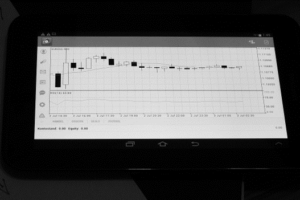
Managing your money can be challenging, and for many of us, there will come a time when we are in debt. This could be because of financial help you’ve applied for in the past, like short-term loans, or maybe you’ve taken out a mortgage – either way, debt can have an impact on your cash flow. This can be made worse if you’re faced with an emergency, in the form of a faulty boiler, medical bills, or a broken-down car. Thankfully, there are solutions that you can benefit from to help you when you need them most. Below, we’ll take a closer look at one of the most popular emergency finance options; short-term loans.
What is a short-term loan?
A short-term loan can be used to help your personal or business finances. They are loans that are typically available from alternative lenders and can be paid back over a period of a couple of months, to a year depending on your lender’s terms. Most commonly, short-term loans tend to be smaller amounts of money due to the fact they must be paid back over a shorter amount of time – lenders need to ensure that they are still affordable. They are mostly used to help those of us that need money quickly, for example, if we’re faced with an emergency expense that we cannot afford to pay from our monthly income. The requirements that you need to meet set out by these alternative lenders to be approved for a short-term loan can vary, but there is usually an option to suit everyone, even if you have a bad credit history.
Who can apply?
If you’re looking for money quickly to deal with an unprecedented bill, or you’re finding it particularly difficult to stretch your money further, due to low income, or a period of unemployment, a short-term loan could suit you. When you apply for one of these loans, approval happens quickly, and if everything is in order, you could see money arrive in your bank within 24 hours. As we mentioned above, if you need money in an emergency and you don’t have a great credit history, alternative lenders that offer these loans tend to be more lenient than traditional lenders and can offer you a loan even if your credit score is low, basing decisions on affordability.
What are the benefits?
There are a few notable benefits that come with short-term loans that you can take advantage of, such as:
- Easy application: Unlike traditional lenders, alternative lenders allow you to apply for a short-term loan online, in your own time, with a fraction of the information and paperwork that you would need for a bank loan, making the process quick and easy.
- Quick access to funds: Once your application is approved, your agreed sum of money will be accessible in your account as quickly as the day after so you can have peace of mind that you can pay your emergency bill.
- A range of options: You can choose from a range of options, like how much you borrow, and the length of your repayment, and you’ll be able to benefit from flexible requirements.
Are there any drawbacks?
When weighing up the benefits, you also have to think about the disadvantages you might find with this type of loan. Unfortunately, you will incur higher interest rates with short-term loans, this is because of two reasons. If you’re applying for a short-term loan and you have a low credit score, yes, there is a possibility that you’ll be accepted, but your lender could increase interest as they need to make sure they’re going to get the entire sum of money back, and it may be riskier to lend to you. You are also paying back money over a shorter period, which means interest rates will seem more expensive because you are paying over a short amount of time. This can make it more difficult to meet the repayment requirements set out for you, which can be detrimental to your credit score, and end up with you falling further into debt.
Can you use them to get out of debt?
You shouldn’t use short-term loans as a way of getting out of debt. If you’re in debt, you should make a plan to pay it off to alleviate the pressure on your cash flow. If you’re not sure how to do this, creating a budget could be the best option. There are also charities that can help you decide your next steps when it comes to managing and paying off your debt for good. Short-term loans can be expensive and should only be used when you really need them – to deal with an unprecedented expense you have not accounted for. Even then, you should make sure you can afford the repayments, including extra fees and added interest to make sure you don’t fall further into financial hardship.






